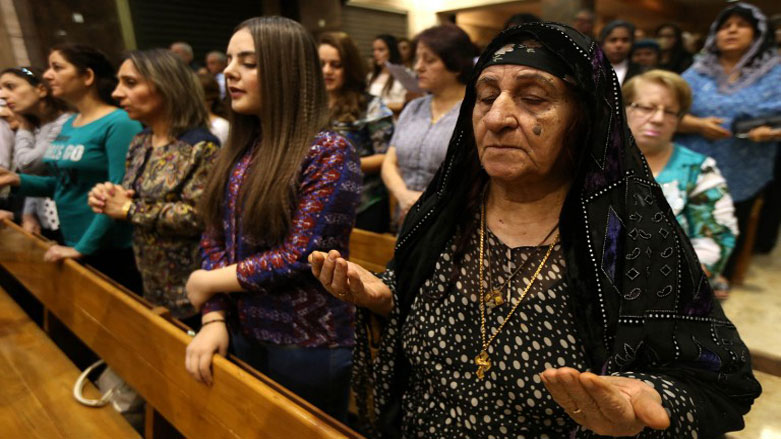US hails tolerance of Kurdistan Region

WASHINGTON DC (Kurdistan24) – “The Kurdish region has been phenomenal in saving lives,” Amb. Sam Brownback, the State Department’s Ambassador-at-Large for International Religious Freedom, said on Wednesday in an interview with Kurdistan 24. “I can say that from years of working on issues surrounding Iraq and your region.”
Brownback served in the US Congress from 1995 to 2011, first as a member of the House of Representatives from his native Kansas, and then as a Kansas senator. Brownback chaired the Senate Foreign Relations subcommittee on Near Eastern and South Asian Affairs, and he has held his current position at the State Department since February 2018.
Brownback noted that, “unfortunately,” there have been repeated attempts “to cleanse the region” of religious and ethnic minorities, but persecuted groups regularly “found a safe haven in the Kurdish region.”
“That’s where they fled to,” Brownback continued. “That’s who provided them protection and a place to stay, and it continues today.”
“It’s something that the global community is very thankful that you do,” the ambassador said, as he addressed the people of the Kurdistan Region in a live interview with Kurdistan 24’s program, “The Newsroom.”
The United States, Brownback explained, is very much committed to restoring to their homes the minority communities in northern Iraq that were displaced by the so-called Islamic State.
“We’ve poured about $340 million into the region so the ethnic and religious minorities could go back to their areas,” he said.
But security remains a problem. “People want to move back to their home regions,” he continued, “but they can’t if they don’t feel secure, and they don’t believe they’re secure.”
The Kurdistan Region provides a “level of security,” he added, and “so I think you’re seeing some of these ethnic and religious minorities resettle there.”
“They would rather go back home,” Brownback suggested, but until their homes are, in fact, secure, “they’re unlikely to do so on a lasting basis.” Many will “try to keep a foot in Erbil or somewhere in the Kurdish region for them to be able to land if things don’t go well.”
Solomon Black, head of the State Department program that overseas demining activities in the Middle East, including Iraq and the Kurdistan Region, recently described to Kurdistan 24 the very considerable difficulties in clearing IEDs from areas that were once controlled by the Islamic State because the explosive hazard contamination has been so extensive.
Related article: US hails Kurdistan demining authority
Brownback also stressed the importance of punishing those individuals responsible for the horrors of the Islamic State.
“We’re pursuing justice against the people who perpetrated the crimes,” he affirmed, noting that mass graves of Ezidis, who were particularly targeted by the terrorist organization, “continue to be discovered.
Related article: UN finishes first Ezidi mass grave exhumation in Iraq, starts next operation
Brownback has a long-standing commitment to advancing religious freedom. As a senator in 1998, he helped to pass the legislation that created the job he now holds.
Brownback has also had a long interest in the Kurds. Already, in 2007, he joined with Joe Biden, then a Democratic senator from Delaware, to prod the administration of George W. Bush to rethink its plans for Iraq, above all to promote a federal, decentralized political system, rather than the highly centralized system that existed then—and now.
The two senators sponsored a non-binding resolution to that effect, approved by the full Senate on a 75-23 vote. The Kurdish leadership welcomed the measure, which would have provided much more local control to Iraq’s major ethnic and religious groups.
However, Nouri al-Maliki was Iraq’s prime minister. A sectarian figure, whose policies would later be widely blamed for the rise of the Islamic State, Maliki rejected the Brownback-Biden proposal as tantamount to the partition of Iraq.
So, too, did the US embassy in Baghdad. However, twelve years later, with Iraq still in turmoil, it would appear to have been an unusually prescient idea.
Editing by Nadia Riva
